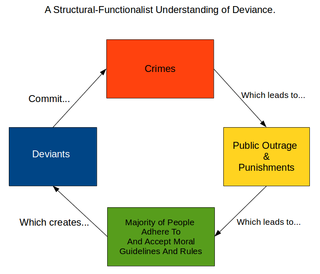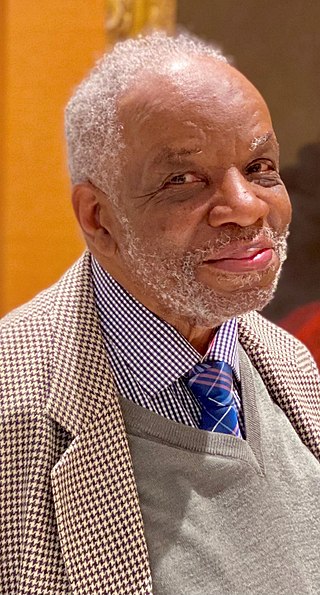Related Research Articles
Anti-psychiatry, sometimes spelled antipsychiatry without the hyphen, is a movement based on the view that psychiatric treatment is often more damaging than helpful to patients, highlighting controversies about psychiatry. Objections include the reliability of psychiatric diagnosis, the questionable effectiveness and harm associated with psychiatric medications, the failure of psychiatry to demonstrate any disease treatment mechanism for psychiatric medication effects, and legal concerns about equal human rights and civil freedom being nullified by the presence of diagnosis. Historical critiques of psychiatry came to light after focus on the extreme harms associated with electroconvulsive therapy or insulin shock therapy. The term "anti-psychiatry" is in dispute and often used to dismiss all critics of psychiatry, many of whom agree that a specialized role of helper for people in emotional distress may at times be appropriate, and allow for individual choice around treatment decisions.

Forensic psychiatry is a subspeciality of psychiatry and is related to criminology. It encompasses the interface between law and psychiatry. According to the American Academy of Psychiatry and the Law, it is defined as "a subspecialty of psychiatry in which scientific and clinical expertise is applied in legal contexts involving civil, criminal, correctional, regulatory, or legislative matters, and in specialized clinical consultations in areas such as risk assessment or employment." A forensic psychiatrist provides services – such as determination of competency to stand trial – to a court of law to facilitate the adjudicative process and provide treatment, such as medications and psychotherapy, to criminals.
Dhat syndrome is a condition found in the cultures of South Asia in which male patients report that they suffer from premature ejaculation or impotence, and believe that they are passing semen in their urine. The condition has no known organic cause.
Girindrasekhar Bose was an early 20th-century Indian psychoanalyst, the first president (1922–1953) of the Indian Psychoanalytic Society. Bose carried on a twenty-year dialogue with Sigmund Freud. Known for disputing the specifics of Freud's Oedipus complex theory, he has been pointed to by some as an early example of non-Western contestations of Western methodologies. Apart from this, he also started the first general hospital psychiatry unit (GHPU) in Asia at the R.G. Kar Medical College, Calcutta in 1933.
Cross-cultural psychiatry is a branch of psychiatry concerned with the cultural context of mental disorders and the challenges of addressing ethnic diversity in psychiatric services. It emerged as a coherent field from several strands of work, including surveys of the prevalence and form of disorders in different cultures or countries; the study of migrant populations and ethnic diversity within countries; and analysis of psychiatry itself as a cultural product.
Kilpauk is a semi residential area located in Chennai, Tamil Nadu, India. The distance from Chennai's city to Kilpauk is about 6 km. The region is situated off the Poonamallee High Road in the west. Adjacent areas of Kilpauk include Chetpet, Kellys, Egmore, Ayanavaram, Anna Nagar, Choolaimedu and Purasawalkam.
Satwant Pasricha is the head of Department of Clinical Psychology at NIMHANS, National Institute of Mental Health and Neurosciences at Bangalore. She also worked for a time at the University of Virginia School of Medicine in the USA. Pasricha investigates reincarnation and near-death experiences. Pasricha co-authored the 2011 book Making sense of near-death experiences, which was Highly Commended in the Psychiatry category at the 2012 British Medical Association Book Awards.

Burghölzli, named after the wooded hill in the district of Riesbach in southeastern Zürich where it is located, is the Psychiatrische Universitätsklinik Zürich, a psychiatric hospital in Switzerland. As a research hospital, it is associated with the University of Zürich.
The Indian Psychiatric Society (IPS) is the oldest professional association of psychiatrists in India. Founded during the 34th Indian Science Congress, IPS replaced the Indian division of the Royal Medico-Psychological Association.

Global Initiative on Psychiatry (GIP) is an international foundation for mental health reform which took part in the campaign against the political abuse of psychiatry in the USSR. The organization is of NGO type.

Vincenzo Di Nicola is an Italian-Canadian psychologist, psychiatrist and family therapist, and philosopher of mind.
Dinesh Kumar Makhan Lal Bhugra is a professor of mental health and diversity at the Institute of Psychiatry at King's College London. He is an honorary consultant psychiatrist at the South London and Maudsley NHS Foundation Trust and is former president of the Royal College of Psychiatrists. He has been president of the World Psychiatric Association and the President Elect of the British Medical Association.
There are 26.8 million people with disabilities in India according to the 2011 census of India, while other sources have offered higher estimates. India is a party to the United Nations Convention on the Rights of Persons with Disabilities. Legislation that affects people with disabilities in India includes the Rights of Persons with Disabilities Act, 2016, the Mental Health Care Act, 2017, the National Trust Act, 1999, and the Rehabilitation Council of India Act, 1992. People with disabilities in India are faced with negative social attitudes in the wider population.
In India, the Mental Health Care Act 2017 was passed on 7 April 2017 and came into force from 29 May 2018. The act effectively decriminalized attempted suicide which was punishable under Section 309 of the Indian Penal Code. The law was described in its opening paragraph as "An Act to provide for mental healthcare and services for persons with mental illness and to protect, promote and fulfill the rights of such persons during delivery of mental healthcare and services and for matters connected therewith or incidental thereto." This Act superseded the previously existing Mental Health Act, 1987 that was passed on 22 May 1987.

Ganesan Venkatasubramanian is an Indian psychiatrist and clinician-scientist who works as a professor of psychiatry at the National Institute of Mental Health and Neurosciences, Bangalore (NIMHANS). His overarching research interest to learn the science that will facilitate a personalized approach to understand and treat severe mental disorders like schizophrenia. Venkatasubramanian is known for his studies in the fields of schizophrenia, transcranial Direct Current Stimulation (tDCS), brain imaging, neuroimmunology, neurometabolism and several other areas of biological psychiatry. The Council of Scientific and Industrial Research, the apex agency of the Government of India for scientific research, awarded him the Shanti Swarup Bhatnagar Prize for Science and Technology, one of the highest Indian science awards, for his contributions to medical sciences in 2018. He was also one of the collaborating scientists in the NIMHANS-IOB Bioinformatics and Proteomics laboratory of the Institute of Bioinformatics (IOB) in Bangalore and NIMHANS. Besides, he is an adjunct faculty at the Centre for Brain Research (CBR) in Bangalore.

Aggrey Washington Burke FRCPsych is a British retired psychiatrist and academic, born in Jamaica, who spent the majority of his medical career at St George's Hospital in London, UK, specialising in transcultural psychiatry and writing literature on changing attitudes towards black people and mental health. He has carried out extensive research on racism and mental illness and is the first black consultant psychiatrist appointed by Britain's National Health Service (NHS).

Mental healthcare in India is a right secured to every person in the country by law. Indian mental health legislation, as per a 2017 study, meets 68% (119/175) of the World Health Organization (WHO) standards laid down in the WHO Checklist of Mental Health Legislation. However, human resources and expertise in the field of mental health in India is significantly low when compared to the population of the country. The allocation of the national healthcare budget to mental health is also low, standing at 0.16%. India's mental health policy was released in 2014.
Suicide prevention and intervention efforts in India are in the nascent stage. According to the World Health Organization (WHO), suicide in India is a serious public health issue but it can be prevented with timely interventions that are based on evidence. Suicide prevention is also one of the United Nations Sustainable Development Goals (SDG3.4.2) wherein they have asked member countries to work towards reduce global suicide rates by one third by 2030. Notable steps taken by the Government of India include the decriminalization of suicide in the Mental HealthCare Act of 2017 and launching of India's first mental health toll free helpline KIRAN. Many experts have emphasised the urgent need for a national strategy for suicide prevention to be implemented that is multi-sectoral in nature.
Youth suicide in India is when young Indian people deliberately end their own life. People aged 15 to 24 years have the highest suicide rate in India, which is consistent with international trends in youth suicide. 35% of recorded suicides in India occur in this age group. Risk factors and methods of youth suicide differ from those in other age groups.
Kamalini Sarabhai (1925–1981) was a clinician who trained and worked at the Tavistock Clinic in the UK. She brought psychoanalytic practices to India when she and partner Gautam Sarabhai established the B.M. Institute of Mental Health in Ahmedabad in 1966.
References
- ↑ Bhattacharya, Debasis; Bhattacharya, Rahul (April 2016). "Professor Ajita Chakraborty MB, DPM, FRCP (Ed.) FRCPsych: Formerly Director of Postgraduate Medical and Research Institute, Professor and Head of the Department of Neurology and Psychiatry, Calcutta, India". BJPsych Bulletin. 40 (2): 109. doi:10.1192/pb.bp.115.051995. ISSN 2056-4694. PMC 4817665 .
- 1 2 Prabhakar, Manasa (July 2021). "Dr. Ajitha Chakraborty: The first practicing Indian female psychiatrist (October 31, 1926–May 08, 2015)". Telangana Journal of Psychiatry. 7 (2): 148. doi: 10.4103/tjp.tjp_40_21 . ISSN 2772-8706.
- 1 2 Bhattacharya, Debasis; Bhattacharya, Rahul (December 2015). "In Memoriam – Professor Ajita Chakraborty". Transcultural Psychiatry. 52 (6): NP7–NP9. doi:10.1177/1363461515612029. ISSN 1363-4615. PMID 26578635. S2CID 35142343.
- 1 2 Bhattacharyya, Ranjan (2018). "The development of mental hospitals in West Bengal: A brief history and changing trends". Indian Journal of Psychiatry. 60 (6): S198–S202. doi: 10.4103/psychiatry.IndianJPsychiatry_432_17 . ISSN 0019-5545. PMC 5836338 . PMID 29527048.
- 1 2 Ghosal, Malay Kumar (2015). "Professor Ajita Chakraborty". Bengal Journal of Psychiatry: 40–41. doi:10.51332/bjp.2015.v20.i1.48. ISSN 2348-9227.
- ↑ Reddy, Preetha (26 January 2020). "Time for gender parity in leadership in healthcare". Gulf News– via Proquest.
- ↑ Chakraborty, A. (May 1991). "Culture, colonialism, and psychiatry". The Lancet. 337 (8751): 1204–1207. doi:10.1016/0140-6736(91)92869-4. ISSN 0140-6736. PMID 1673748. S2CID 33640244.
- ↑ Saikia, Dhruba J. (2018). Krishna, Sumi; Chadha, Gita (eds.). "FEMINISTS AND SCIENCE: Critiques and Changing Perspectives in India, Vol. I". India International Centre Quarterly. 45 (1): 159–164. ISSN 0376-9771. JSTOR 45129822.
- ↑ Reviews of Social stress and mental health
- Indiresan, Jaya (1990). "Review of A Social-Psychiatric Field Study of Calcutta". Sociological Bulletin. 39 (1/2): 167–168. doi:10.1177/0038022919900110. ISSN 0038-0229. JSTOR 23634532. S2CID 220049632.
- Dean, Alfred (1992). "Review of Social Stress and Mental Health: A Social-Psychiatric Field Study of Calcutta". Contemporary Sociology. 21 (1): 119–120. doi:10.2307/2074797. ISSN 0094-3061. JSTOR 2074797.
- ↑ Review of My Life as a Psychiatrist
- Das, Anindya (February 2013). "Ajita Chakraborty, My Life as a Psychiatrist: Memoirs and Essays". Transcultural Psychiatry. 50 (1): 155–157. doi:10.1177/1363461513484417. ISSN 1363-4615. S2CID 147011506.
- Basu, Amit (January 2012). "My life as a psychiatrist: Memoirs and essays". Indian Journal of Psychiatry. 54 (1): 97–98. doi: 10.4103/0019-5545.94661 .